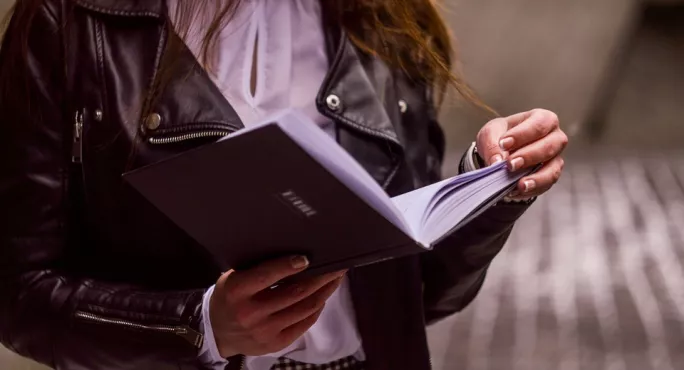- Home
- Teaching & Learning
- Secondary
- How OCR is likely to offend...well, everyone, really
How OCR is likely to offend...well, everyone, really

In keeping with the latest transatlantic fashion, OCR is holding its own gender-reveal event.
Not the sort that inadvertently starts an avalanche and buries a small town, but the kind that causes ripples of consternation and agitation around the department-meeting table in schools across the country.
Change is coming to OCR’s A-level literature course offerings. Teachers have been invited to choose new texts, open the comparative and contextual study options to a wider range of voices, and, in two cases, rename and redefine the topics altogether.
The semantic deck shuffling of options for “The immigrant experience” is more cosmetic than conceptual. The real revolution is happening to women.
A-level English: Women are not a literary tradition
“Women in literature” has never made much sense as a category of study. Women - whether in or outside of literature - are not a genre.
Unlike the most popular topic offered by OCR, the Gothic, women are not a literary tradition with their own evolving canon, set of tropes and hardcore fanbase that rolls into Whitby once a year wearing black lipstick and elaborate corsets.
Does OCR mean women as authors of literature - women labouring at the business end of the crafting and selling of narrative? The new options are all by female writers, after all.
But maybe it means representations of women in literature? That would certainly explain the presence of Thomas Hardy and DH Lawrence in the original choice of texts and the erratic hop, skip and jump through the seminal texts of Aristophanes, Chaucer and Milton in its guide to context.
Astute readers should pause here to consult a dictionary about the dual meanings of the word “seminal”.
It turns out that OCR doesn’t really know what it’s talking about, and this is reflected in its desperate plea for respondents to choose a new name for the unit. What, it asks, do I feel “best encapsulates this topic’s intentions”?
Dear OCR: I am not a psychic. Or your therapist. But the options you have given me suggest that you are having a spot of what Judith Butler famously called “gender trouble”.
These are the options in full, baffling glory:
- Gender in literature
- Representing gender
- Other (please specify)
OCR exam board’s gender trouble
I am a huge fan of gender studies. I am a huge fan of analysing gender as a literary performance. But the thing with genders is that there are, rather famously, more than one of them.
None of the new suggested books invites a deep dive into masculinity. They include Bernardine Evaristo’s Girl, Woman, Other, with its beautiful meditation on Megan/Morgan and their rejection of gender altogether; and Jackie Kay’s Trumpet, a novelistic recounting of the life of trans male jazz musician Billy Tipton. OCR has also suggested Ali Smith’s How to Be Both, with its central female character who lives disguised as a man.
So by “gender”, OCR seems to mean “only people identified as female at birth”. If you were foolish enough to assume that masculinity was also a social construction, the exam board is here to set you right: nope. Gender is just for the people with ovaries. Men grow artlessly from nature, like sturdy oak trees or similar.
If we’re still going to call it “Women in literature” but now include trans men as some of those “women”, then we are destined to baffle and offend everyone. And I mean every possible group and identity, every political constituency, and all of our students.
Instead, I choose “Other”. Let’s just call it “Other (please specify)”.
If you have a better idea, please let OCR know. And do it by the end of today - 6 May - because that’s when the consultation closes.
Tabitha McIntosh is an English teacher and key stage 5 manager at a comprehensive school in outer London. She tweets as @TabitaSurge
You need a Tes subscription to read this article
Subscribe now to read this article and get other subscriber-only content:
- Unlimited access to all Tes magazine content
- Exclusive subscriber-only stories
- Award-winning email newsletters
Already a subscriber? Log in
You need a subscription to read this article
Subscribe now to read this article and get other subscriber-only content, including:
- Unlimited access to all Tes magazine content
- Exclusive subscriber-only stories
- Award-winning email newsletters
topics in this article



